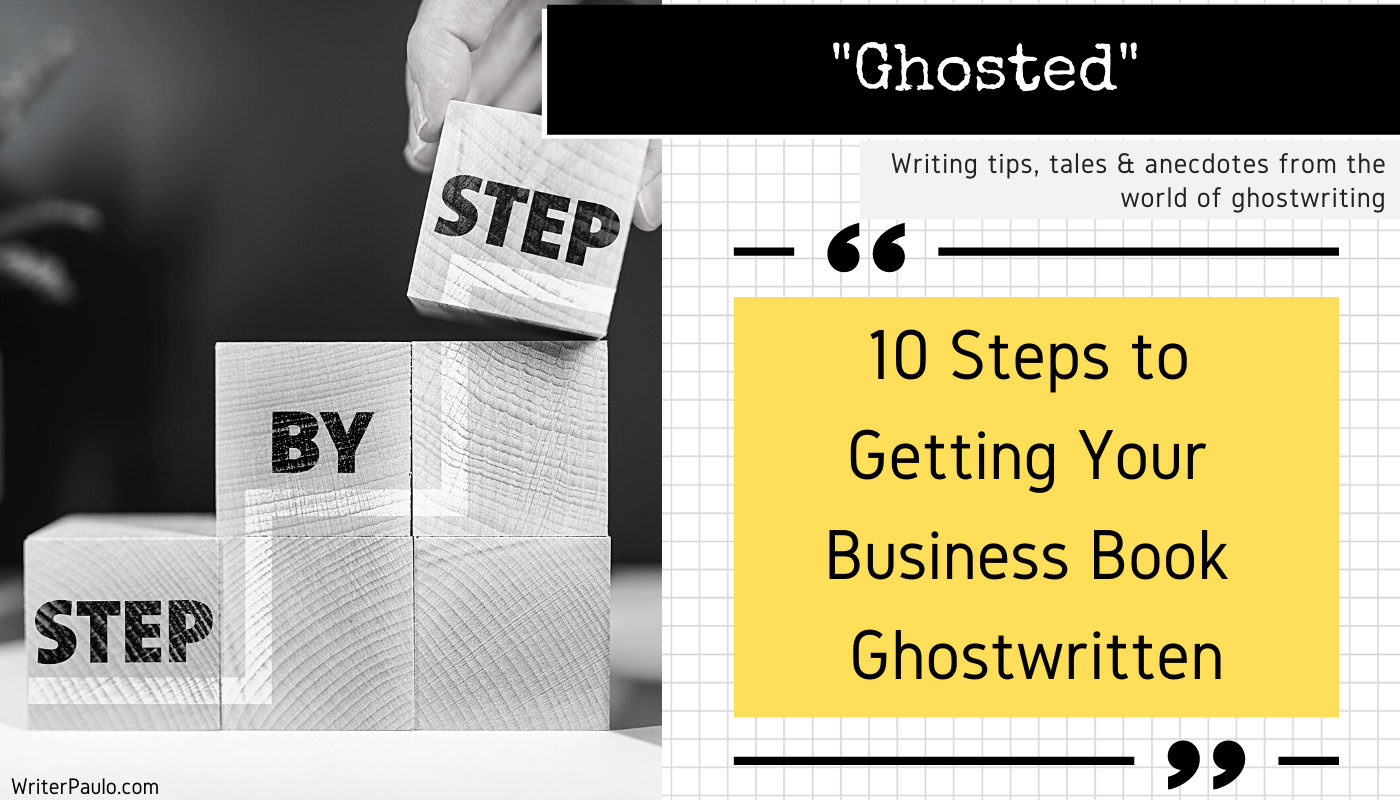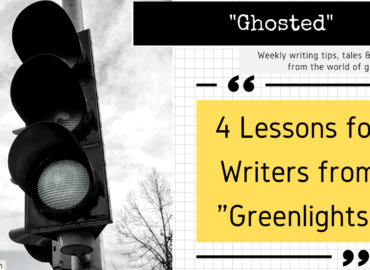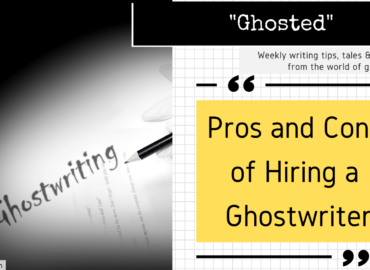I don’t know how other ghostwriters do it, but this is how I do it.
This article only covers books that will be self-published. Ghostwriting a book that will be professionally published is a little more involved, but these projects are in the minority.
Step 1: Project Scope
We have to define the project scope. This step is done before quoting and payment. Every ghostwriting project is different, and so pricing for every ghostwriting project is highly variable.
You basically get “free advice” from me in this phase. I’m trying to understand your publishing goals.
I’m also trying to understand — and get you to understand — how you plan on turning a profit on your book.
I will give you all the advice I can on how to achieve this.
Step 2: Quoting, Project Timeline
Quoting is tricky on books, but I try and give fixed prices.
Sometimes I’ll give a “between X and Y” price because it’s so difficult to work out the details.
It has to be a price we’re both comfortable with and which makes sense to both of us.
By this time, we will have talked a lot about your ROI. Your book has to be profitable, otherwise I won’t get repeat business from you.
At this stage, we’ll also talk about the project timeline. If I’m swamped, the timeframe for the project will be a little longer. If I’m not, it’ll be quicker. Usually it takes a few months, but I’ve also written lengthy books in a few weeks.
It also depends on how much time you have, because ghostwriting requires input from the author — you.
I do my best to prioritize book projects over business articles because the work is both remunerative and extremely enjoyable.
Step 3: Informal agreement in writing
I’m not a fan of lawyers (or their fees), but we’ll put something in writing, and both agree to it so that the boundaries of the project are at least vaguely defined.
Also, we’ll put something in writing regarding libel suits, releasing each other from liability for any publishable info each of us brings to the table and states is true.
Step 4: Payment #1
I do my ghostwriting projects in non-refundable phases. You can cancel at any point after any phase.
At the end of each phase, you will receive a product that you can take to another writer and continue the work with them, in case you are not satisfied with my work.
I work this way because:
- It forces me to deliver top-quality work.
- It makes it easier to close deals because clients are not “locked in” to a heftily priced project which is not going well.
Because of this approach, I work my butt off to ensure these projects go well, because I know that the next paycheck isn’t guaranteed unless you’re satisfied.
Step 5: Scheduling and Recording Interviews
After the initial payment, I will interview you extensively and record the interviews on my computer. Depending on the subject matter, I’ll either put together some questions for you to answer, or you just tell me everything you want me to write about, and I’ll ask for more details as we go along.
Depending on the type of book being written, I might start writing and outlining during the interviews phase, or we might just get all the interviews done first.
Either way, I prefer to start writing as soon as I can, but that’s not always possible, and some clients are more comfortable with me only starting to write after all the interviews are done.
Step 6: Outline and Chapter One
I call this “Phase One” of the project. And, when Phase One is completed, I’ll invoice you to start on Phase Two.
Phase One — interviews, outline, first chapter — tends to be top-heavy for me. I put in a lot more work than your initial fee covers, which adds to the pressure for me to do a good job.
There likely will be a lot of back and forth during this phase until we get it right.
The goal of Phase One is to come up with an outline that excites you, and a writing style in Chapter One which you think will work for the entirety of the book.
Step 7: Thirty to fifty percent of the book completed in rough draft
Things get a little “non-scientific” at this stage, and become more “artistic.”
Writing a book is a living process. It’s not nuts and bolts and mathematical formulae.
Maybe we’ll get through half the book, maybe only a third.
Either way, the goal of this phase is to iron out any kinks in the prose itself so that you become confident that I can take off and do the rest of the book on my own.
There’ll be varying degrees of back and forth in this phase. I’ll need your feedback quite a bit about what I’ve written.
At some stage, I’ll write you another bill and get the rest of the book done — first draft.
Step 8: Rough draft completed — now the real work begins!
Yay, we finished the first draft, we’re almost there!
Haha. Funny joke.
Now the real work begins — fixing up the manuscript so that it flows, so that it makes sense, so that it doesn’t get “boring” in the middle.
You will contribute to whatever degree you wish to at this stage. Some people just want me to get on with it, others want to know about every step and offer their input.
Likely plenty more video calls during this phase, if you have time.
Step 9: Editing, proofreading, beta-readers, the final manuscript
Editing is a big subject. And we won’t discuss it all here.
I prefer to do my own editing. There are good reasons for this which I won’t get into here.
But if the book will be published professionally, the publisher will take a role in the editing and proofreading phase.
This phase can be terribly painful when you’re reading the manuscript for the 1,076,398th time!
Beta readers are an option here, getting outside feedback on how the book sounds.
Like all the steps of ghostwriting a book, there will be lots of back and forth between us, plenty of collaboration.
Step 10: Voila! Book finished and ready to publish!
I’ll usually get the book in a format that is ready to publish on Kindle, iBooks as well as paperback.
The same goes for the cover. Sometimes I get it done with some professionals I know and have worked with before (I don’t charge a premium or make any profit on this), or the client will get it done with someone they know.
I’ll write you a final bill, and hopefully the book makes you so much money that you hire me again!
Bonus Step 11: Market, market, market!
Okay, this step isn’t part of the project. But books which are not marketed don’t get sold.
We will have spoken about this at length during the writing of the book.
The end?
It could be that we never meet in person despite having undergone such an intensive project. But good friendships sometimes result from projects of this nature.
For me, it is an endless source of fascination to learn about different people and what they do in life, and to be a part of telling their story.
So, there you have it. Ten (actually, eleven) steps to having a business book ghostwritten successfully.





